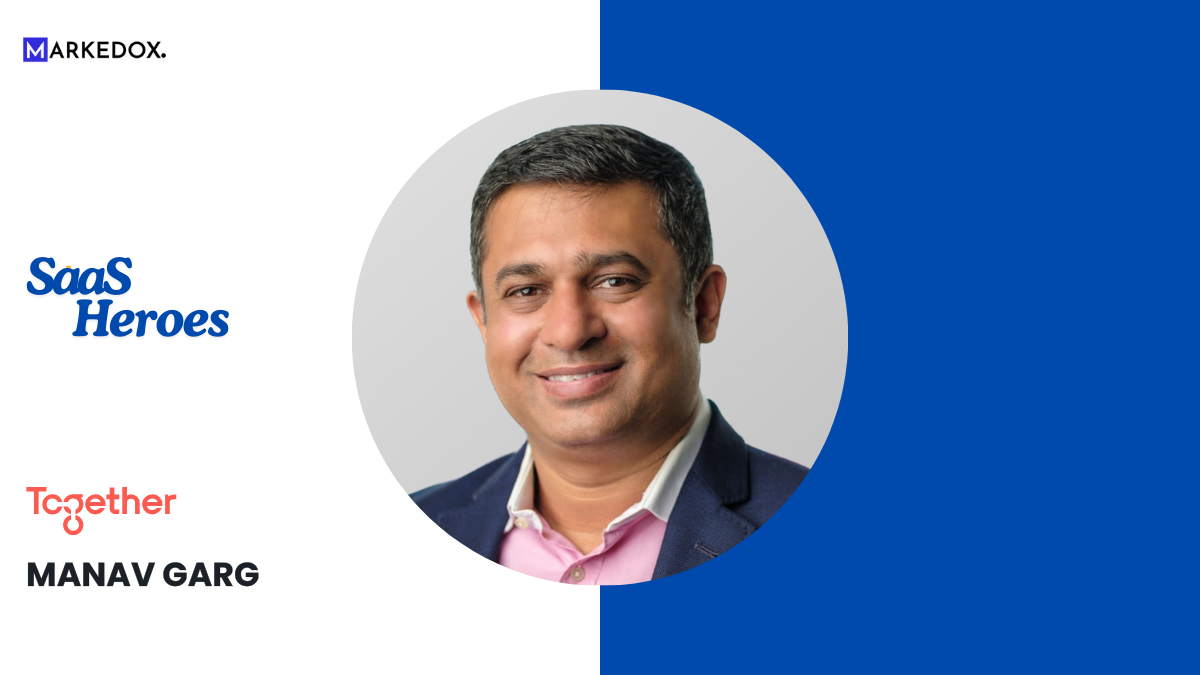I was blown away by Manav’s story. Growing up in tiny Moga, Punjab, he couldn’t speak English and was told by teachers not to dream big. Now he’s sold his software company and invests in India’s tech future. His journey shows what’s possible when you refuse to accept limitations.
Starting with Nothing
Manav grew up in Moga, a small town known only for its Nestle factory. His teachers laughed when he wanted to take entrance exams for engineering college.
“Don’t try all these things, nobody’s ever made it to any entrance exam. You’ll waste your time,” they said.
He ignored them. Not only did he pass, but he became part of the first group from his town to make it to engineering college.
At college, he struggled with English and culture shock, surrounded by students from across India. He taught himself English by reading Sidney Sheldon novels and Archie comics. During summers, he visited Haridwar with his grandparents, developing a spiritual foundation that would help him through future challenges.
The Crazy Leap
In 2001, Manav shocked everyone by quitting his cushy international trading job. He had no plan, just a feeling he needed to build something.
“I didn’t discuss it with anybody, not friends, not family. I just left my job,” he recalls.
With one year of savings and zero tech background, he tried to figure out what to do. India had no startup ecosystem back then. JP Morgan spent three months evaluating him before passing:
“We like you, we love your profile, but we can’t invest. You’re not from IIM, you’ve never run a business, you don’t know technology, and you want to build products globally?”
Desperate with six months of runway left, Manav barged into the office of Kit Sha, chairman of his former company, without an appointment. After an hour’s chat, Kit backed him with $1 million.
Building Eka
With funding secured but no tech knowledge, Manav traveled across India meeting software companies. He negotiated a deal with Trient Technologies in Bangalore: $100,000 in cash, $250,000 in equity for building the initial software.
Since he didn’t know how to write functional specs, he drew user screens based on his trading experience. This hands-on approach led to Eka Software’s founding in 2004.
The early days were brutal. As an Indian founder selling to global enterprises, trust was non-existent:
“A customer would call me, make me wait 24 hours in the office. You’re sitting there all night trying to figure out when this guy will show up.”
But Manav persisted. His breakthrough came when Noble, a $50 billion company, awarded Eka its first million-dollar contract in 2007. The team worked around the clock to deliver.
By 2013-2014, Eka hit $34 million in revenue with $9 million in EBITDA. Then disaster struck – the oil crash devastated their commodity-focused customers. They made the painful decision to pivot from license-based software to cloud.
“It’s a very tough pivot. If I’m selling to you for $1 million, a subscription will be $350K. Not only does churn happen, your top-line revenue drops and profitability disappears.”
Despite these challenges, Eka returned to profitability and eventually back to $30 million in revenue.
Knowing When to Exit
In 2018-2019, Manav faced a difficult question: should he sell Eka?
“Entrepreneurship is an emotional roller coaster,” he says. “What will happen to my identity? My family said we have 10 global offices, 100+ global customers, why would you leave something our children could work for?”
After deep reflection, he realized his true passion was building India as a brand for global technology. He meticulously prepared for an exit over 18-24 months:
- He strengthened financial operations and compliance
- He verified customer satisfaction across their base
- He prepared his team to run without him
- He aligned the board and shareholders on the exit strategy
In March 2024, STG SimCorp Technology Group acquired Eka, with Manav’s team taking senior leadership positions in the combined company.
Wisdom for the Journey
Build Real Relationships
“People work with people, and people buy from people,” Manav emphasizes.
Cold calling might start a conversation, but lasting success comes from genuine relationships. His partnerships with customers, employees, and co-investors often span decades.
Guard Your Mental Health
Manav credits his early grounding in the Bhagavad Gita for giving him strength during tough times:
“You need mental toughness when expectation from family is sky-high, and you’re waiting days in a small hotel when people refuse to meet you.”
Make Time to Think
Every morning at 5 AM, Manav spends at least an hour in reflection – thinking about what’s working and what isn’t.
“Put time for reflection on your calendar, whether it’s daily, weekly, or monthly. You need those contemplation moments.”
Separate Yourself from Your Business
“Business is an enterprise by itself. A founder and business are not one thing; they are two separate journeys.”
This perspective helps founders make better decisions and eventually transition when the time is right.
The Future of Indian Tech
Manav sees enormous potential for Indian startups. In 2010, India had zero SaaS companies at $100 million revenue. Today there are about 15. He believes India could have 200 companies at that scale by 2030.
With AI, opportunities multiply. When ChatGPT launched in November 2022, Together Fund saw maybe one AI startup per month. Now they’re seeing 100 per month.
Through Together Fund, which Manav co-founded with Girish Mathrubootham, he’s now backing the next generation of founders. They’ve invested in companies like Rocketlane, BrightChamps, and Toplyne.
As he puts it: “What is the beauty of India? Sitting in India, founders from Udaipur, Jodhpur, Bengaluru are able to build world-class products. That’s the first big win.”
Manav Garg proved it’s possible. Now he’s helping others do the same.


